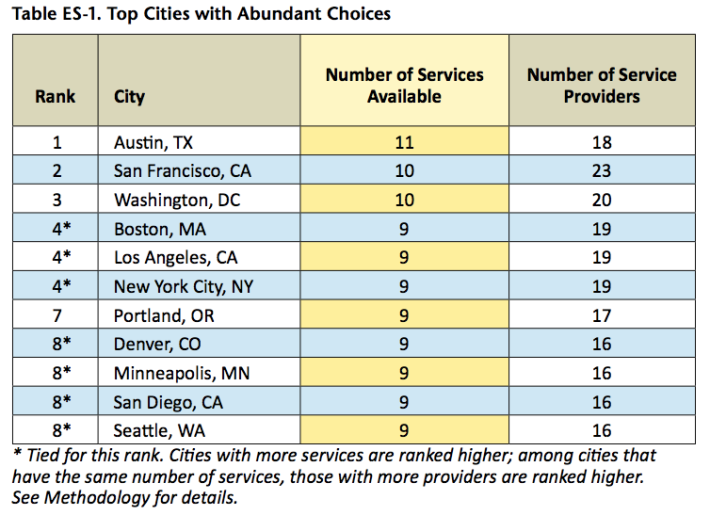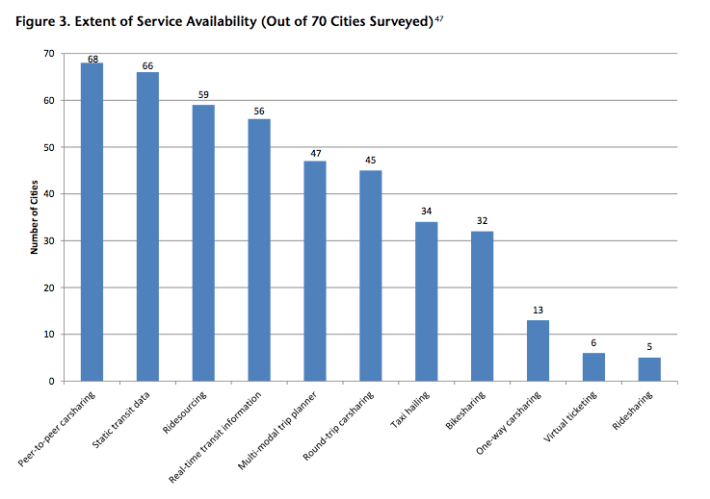
Which cities are making it easy to catch the next bus without a long wait, hail a ride with an app, or hop on bike-share? According to a new ranking from the Frontier Group and the U.S. Public Interest Research Group, Austin is leading the pack when it comes to embracing technological innovation that helps people get around without being tethered to a car.
The research team examined the availability of 11 types of technology-assisted transportation -- like real-time transit information, ride-hailing services, virtual ticketing, multi-modal trip-planning apps, and bike-share -- in 70 U.S. cities.
Some of them have penetrated nearly every market. For example, 68 metros have some form of peer-to-peer car-share that allows vehicle owners to rent their car to other people using services such as RelayRides. Services the authors call "ridesourcing," like Uber and Lyft, are available in 59 cities. Ride-sharing services designed to facilitate carpooling, like those offered by ZimRide or Carma, are only available in five cities.
Some form of bike-share is available in 32 cities, and 47 offer real-time transit data. Only six cities, Austin among them, have "virtual ticketing" that allows transit passengers to purchase rides using smartphones without cash.
A total of 19 cities have what PIRG and Frontier referred to as "abundant choices" -- at least eight of the 11 technologies. These cities are home to a combined 28 million people and tend to skew younger, with greater access to the internet.






